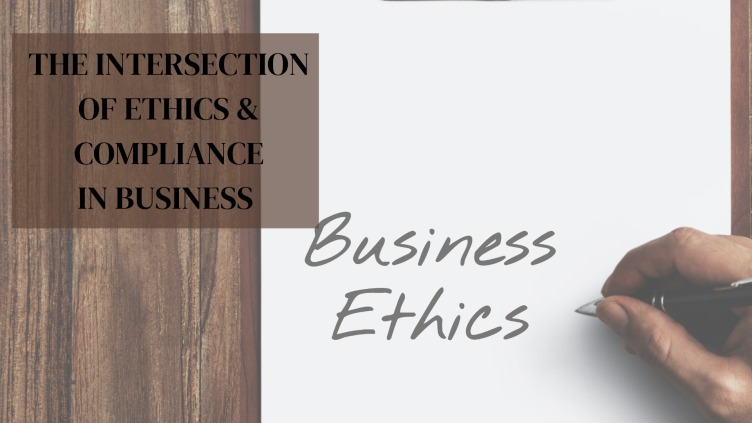The Intersection of Ethics and Compliance in Business
When considering compliance and ethics, whether assessing corporate policy or developing a company culture, one must regard both aspects as distinct entities. When it comes to compliance, a corporation must follow the regulations and procedures established to avoid breaking the law. Compliance failures can frequently result in substantial penalties such as fines, jail time, liabilities, and the dismissal of affected workers. While discussing ethics, the organization focuses on what is ethically or morally best. It adheres to a code of conduct in doing what is suitable for the benefit of the firm, its workers, customers, the environment, and other issues.
Importance of Ethics in an Organization
Creating an ethical compliance culture increases the aspects of a pleasant and thriving company environment and improving the employee morale. A written code of ethics typically goes above and beyond what the law demands, and it serves as a solid basis to foster a culture of respect, trust, openness, and responsibility. According to a research upholding ethical principles in the workplace improves office performance, especially when the code of conduct coincides with employees’ beliefs. While an action or conduct is legally permissible, it is not always ethical. As a result, there is a need to both establish and nurture an ethical compliance culture since the two go hand in hand.
Enforcing Ethics through Compliance
Companies have the authority to force employees to follow the security policies, rules, and laws they establish. For example, if the employer owns the hardware, the system, or both, the employer has the right to supervise how it is used. Employers owe it to themselves, their workers and customers, and other stakeholders and third parties to safeguard their data and information. This is the primary reason compliance requirements exist: to guarantee that firms establish and execute policies and processes to secure sensitive data as much as feasible.
Creating a Culture of Ethics and Compliance
Every organization need a complete policy handbook, especially a written code of conduct and code of ethics policy, and this must be done in an official, traceable policy; otherwise, these ethics and compliance initiatives will be less effective. The company’s accountability is about establishing clear expectations and holding all employees accountable to these standards. The organization should prioritize properly communicating its ethics, principles and ensuring workers understand how these policies affect their jobs.
Only by being proactive can ethics be achieved. To be ethical, you must focus on values, character, principles, and other factors that will provide a basis for making difficult judgments before they occur. If companies invest the same amount of time, effort, and money in ethics training as they do in compliance training, and develop proactive, ongoing training in both areas, maybe, just maybe, the way business is conducted, the way people are trained, and treated, will take a major step in the ethical direction, which may help people choose to do right rather than simply forcing them to do right.


